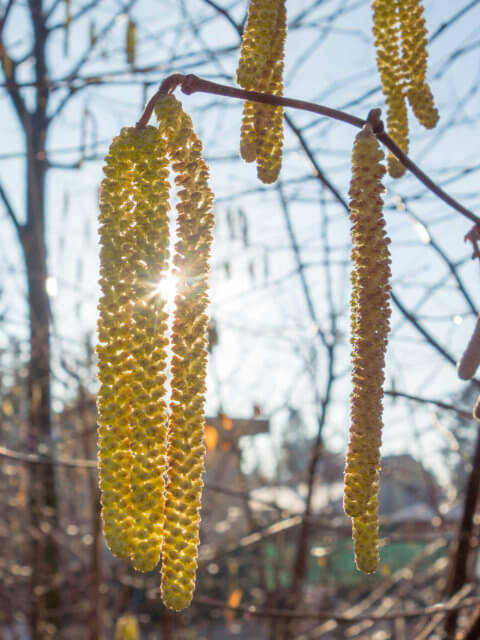Alder Pollen Allergy
Alder pollen comes from alder trees, which are a type of tree that grows mostly in Europe and North America.

The pollen is tiny and floats in the air, especially during certain months. Pollen is how trees and plants reproduce by spreading tiny particles to help grow new trees.
The pollen from alder trees is often carried by the wind, and people can breathe it in without even knowing.
People who are allergic to alder pollen may also have similar reactions to other tree pollens, like birch and olive pollen. These trees release pollen in a similar way, and the symptoms can be very alike.
Other types of pollen allergies include grass pollen, mugwort, and ragweed, which can cause similar sneezing, runny noses, and itchy eyes.
Symptoms of an Alder Pollen Allergy
If someone has an alder pollen allergy, their body reacts when they breathe in the pollen. The immune system treats the pollen like something harmful, even though it isn't dangerous. Here are some common symptoms of an alder pollen allergy:
- Sneezing a lot
- Runny or stuffy nose
- Itchy or watery eyes
- Coughing
- Feeling tired or having trouble sleeping
- Sometimes, people might get a headache
If someone already has asthma, alder pollen can make it worse by causing more coughing and difficulty breathing.
Where is Alder Pollen Found?
Alder trees are mostly found in Europe, North America, and parts of Asia. They like to grow near rivers and streams. Alder trees are very common in places like the UK, Belgium, Germany, and the Netherlands.
For example, cities like London, Munich, Brussels, and Amsterdam often have high alder pollen counts during the spring.
When is Alder Pollen Season?
Alder pollen season usually happens in early spring. The trees start releasing pollen as early as January in some places and can continue until April. In warmer areas, the season might start sooner.
For people living in colder areas, it might start a little later. The highest pollen counts usually happen in March. During this time, people with an alder pollen allergy may have stronger symptoms. It's helpful to check the local pollen count to know how bad it will be on a certain day.
Treating an Alder Pollen Allergy
There are ways to treat an alder pollen allergy. These treatments can help reduce the symptoms:
- OTC allergy medicines: These are pills or nasal sprays that people can buy without a prescription. They help stop the body from reacting to pollen.
- Prescription allergy medicines: If over-the-counter medicines don't work, a doctor can give stronger medicines to help.
- Allergy shots: These are injections that can help a person become less allergic over time. This treatment is done by a doctor and takes a while to work.
- Nasal rinses: Using a saline rinse can help clear pollen from the nose, making it easier to breathe.
- Staying indoors: On days when the pollen count is high, it's a good idea to stay inside, especially during the morning when pollen levels are at their worst.
For those with an alder pollen allergy, it's also important to avoid certain foods that might cause reactions. Some foods, like apples, peaches, and cherries, can cause a condition called Oral Allergy Syndrome (OAS) in people with an alder pollen allergy.
The body thinks the proteins in these foods are similar to the proteins in alder pollen, which can lead to itching in the mouth or throat.
Check Pollen Levels for Alder Pollen
See the current alder pollen levels across Europe on our Pollen Map (select "alder" on the map options).
You can also sign up for pollen alerts to be notified of high alder pollen days in your city.